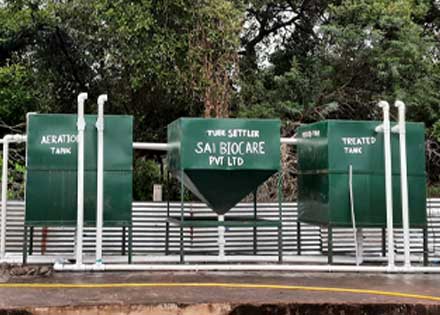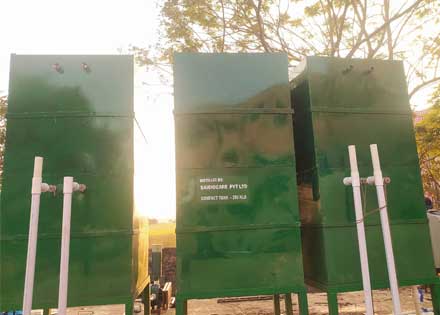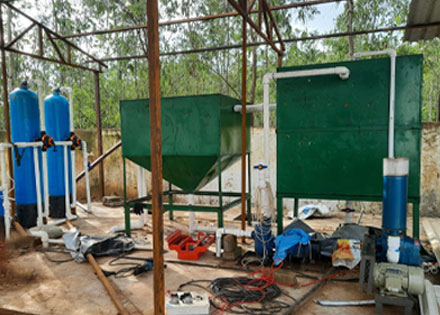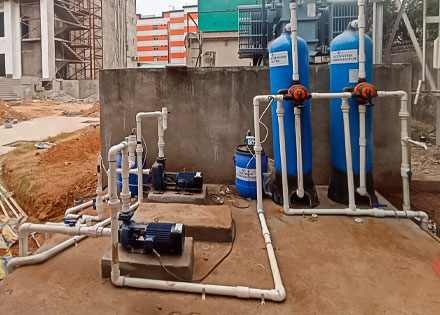Effluent Treatment Plants (ETP)
Home / Effluent Treatment Plants (ETP)
Sewage Treatment Plant (STP)
A Sewage Treatment Plant (STP) treats the sewage produced from various establishments to make it safe for disposal. it is a process of purification of Sewage water and reusing for Gardening, Agricultural and other general Purpose. It performs physical, chemical, and biological processes to remove contaminants and produce treated wastewater that is safe enough to dispose of into the environment. A by-product of sewage treatment is a semi-solid waste called sewage sludge. The sludge further undergoes treatment before being suitable for disposal or application to land.






Importance of STPs :
- Public Health Protection: STPs remove harmful pathogens, pollutants, and contaminants from sewage and wastewater, preventing the spread of waterborne diseases and safeguarding public health.
- Environmental Conservation: By treating wastewater before discharge into natural water bodies, STPs reduce pollution and minimize the ecological impact on rivers, lakes, and oceans, preserving aquatic ecosystems and biodiversity.
- Resource Recovery: STPs facilitate the recovery of valuable resources such as water, energy, and nutrients from wastewater through advanced treatment processes and innovative technologies, promoting resource conservation and circular economy principles.
- Regulatory Compliance: STPs help municipalities, industries, and other stakeholders comply with environmental regulations and discharge standards, ensuring responsible wastewater management and minimizing legal and regulatory risks.
Components of STPs :
- Preliminary Treatment: Screening and grit removal: Removes large objects, debris, and grit from incoming sewage to protect downstream processes and equipment.
- Primary sedimentation: Allows settling of suspended solids and organic matter, forming primary sludge for further treatment.
- Secondary Treatment: Biological treatment: Utilizes microorganisms to degrade organic pollutants in sewage, typically through activated sludge, trickling filters, or other biological processes.
- Aeration : Provides oxygen to support aerobic microbial activity and enhance pollutant degradation. Secondary sedimentation: Separates biomass (activated sludge) from treated wastewater, forming secondary sludge.
- Tertiary Treatment:
- Advanced filtration: Utilizes techniques such as sand filtration, membrane filtration, or tertiary biological processes to further remove remaining contaminants and improve water quality.
- Disinfection: Treats effluent with disinfectants (e.g., chlorine, UV irradiation) to eliminate pathogens and ensure public health protection before discharge.
Advanced Technologies:
- Advanced Technologies: Saibiocare offers state-of-the-art treatment technologies and solutions tailored to the specific needs of STPs, enhancing the efficiency and effectiveness of wastewater treatment processes.
- Customized Treatment Programs: Saibiocare designs customized treatment programs based on comprehensive assessments of STP requirements, optimizing performance and ensuring compliance with regulatory standards.
- Sustainable Practices: Saibiocare promotes sustainable wastewater management practices, including resource recovery, energy efficiency, and the use of eco-friendly chemicals, to minimize environmental impact and promote long-term sustainability.
- Ongoing Support and Monitoring: Saibiocare provides continuous support, monitoring, and maintenance services to optimize STP performance, maximize uptime, and address any operational challenges or issues promptly.
